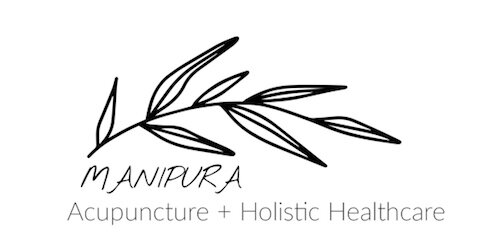Frequently Asked Questions
Q. How does acupuncture work?
Acupuncture achieves the desired results by stimulating specific points near or on the surface of the skin - acupuncture points - that have the ability to alter biochemical and physiological conditions in the body. Because acupuncture points are designated areas of electrical sensitivity, inserting needles at these points stimulates sensory receptors.
This in turn stimulates nerves that transmit impulses to the hypothalamic-pituitary system in the brain. The hypothalamus-pituitary glands are responsible for releasing neurotransmitters and endorphins, the body's natural pain-killing hormones.
Endorphins play a significant role in the hormonal system, which is why acupuncture is effective in treating back pain, arthritis, PMS and infertility. The substances released as a result of acupuncture relax the body, and also regulate serotonin in the brain, which affects emotional states. Other physiological effects include increased circulation, decreased inflammation, relief of muscle spasms and increased T-cell count, which supports the immune system.
Q. What is Qi?
According to Traditional Chinese Medicine (TCM) qi is the vital energy that circulates through the body at all times. There are 2 main branches. The physical and nourishing portion that makes up the air, water and food that we take in. The other is more insubstantial.
It is the summation of vital fluids and the energy that flows through our body. This qi flows along the acupuncture meridian points of the body and is the basis for understanding acupuncture.
Q. Is acupuncture safe?
In the hands of a licensed practitioner acupuncture is a very safe, pain-free, effective, treatment for many acute and chronic conditions that has been used for thousands of years. The acupuncture needles used are a fine, disposable (one-time use), sterile, FDA-approved medical device.
Q. Is acupuncture painful?
Everyone has a different pain threshold and reaction to the needles. Occasionally, there is slight sensation that accompanies insertion, especially if the person is sensitive or emotional that day, but in most cases the needles are painless.
After the needle is inserted, there may be a dull ache, sensation of tingling, heat, cold, or heaviness in the area. This is normal and is referred to as “De Qi” or the arrival of Qi. It is a good sign and means the treatment is working.
Q. Are the needles clean?
All the needles are sterile, clean, and single-packaged for disposable use only.
Q. What is Chinese Herbology?
The use of Chinese Herbs dates back over 3000 years. In Chinese Herbology, practitioners incorporate ingredients from all parts of the plant- for instance the stem, leaf, flower or root. Animal and mineral nutrients are occasionally included as well. Every herb carries specific functions, proprieties, and temperatures which combine to create a formula. Some of the ingredients target the main concern; others guide the formula to a specific part of the body, while some herbs strengthen and increase the efficiency of the formula. Each prescription is specific to the patient and based on their condition.
Q. How long is each acupuncture treatment?
The initial appointment, including consultation and treatment will be scheduled for the duration of 90 minutes. Try to arrive 15 minutes early to fill out necessary paperwork. All follow-up appointments will be scheduled for 60 minutes.
Q. How many treatments will I need?
The amount and frequency will be determined by the practitioner on a case to case basis. Generally, there are major improvements within 3-5 sessions. Some people continue to come even though their condition has improved as method of stress management or maintenance.
Q. What does Acupuncture treat?
Acupuncture treats a variety of conditions. Below is a common list of what we see quite often:
· Fertility and Women’s wellness
· Stress Reduction
· Pain management
· Sleep and eating disorders
· Depression
· ADHD
· Headaches
· Cold and Flu
· Chronic Fatigue Syndrome
· Disease Prevention
If you don't see your ailment on this list, please call or email us to find out if we can be of service to you.
Q. How can I prepare for my treatment?
Come with any questions you might have. Its recommended you wear loose, comfortable clothing. Try to refrain from eating large meals, being overly hungry, or engaging in strenuous workouts before after treatments.
It is also recommended to not use any caffeine, drugs or alcohol for up to 6 hours before and up to 6 hours after treatments. Between treatments, make note of any changes that have occurred, both physical and emotional.
Q. How will I feel after treatment?
While this varies from person to person, most report feeling more relaxed, less pain, and general sense of well-being after treatment
Q. I’m afraid of needles. Does this mean I can’t have acupuncture?
No, we can treat you using magnets, needle free!
Q. Can I get acupuncture if I’m pregnant?
Yes, but let the practitioner know. Acupuncture may even be beneficial as it can treat many disorders of pregnancy such as morning sickness or breech presentation of the fetus.
Q. Can I have acupuncture if I have the cold/flu?
Yes. Acupuncture stimulates the immune system and may increase your resistance to viral or bacterial infection.
Q. Are there any contraindications of acupuncture?
Only very rarely. Your practitioner will ask for relevant details so please discuss any concerns you may have with her.
Q. What training is required to become an acupuncturist?
At minimum, acupuncturists need to graduate from a nationally accredited university with a master’s degree in Acupuncture and Oriental Medicine and obtain state licensing. These programs, including internship, generally take 3-4 years to complete. Re-certification for state license is every two years, and nationally every 5 years, along with continuing education requirements.
